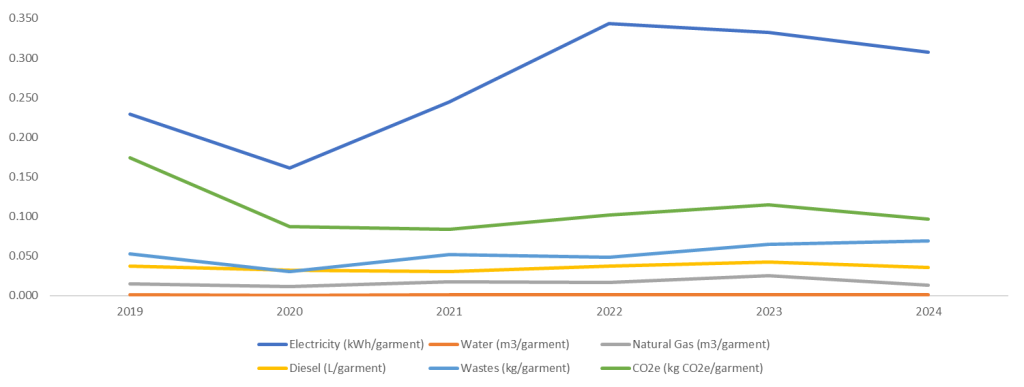The future of the planet and our children’s generations depends on preserving nature and its resources and, therefore, upon a reevaluation of working conditions. We envision a more organic and harmonious world that accommodates smart and sustainable economic growth.
DECENT WORK AND ECONOMIC GROWTH
People are our strength. We invest in the local community, creating jobs and offering dignifying working conditions.
RESPONSIBLE CONSUMPTION AND PRODUCTION
Our thinking is circular, and we produce and consume consciously. We recycle waste, opt for low-impact processes and materials, and our collections are produced using reutilized materials.
CLIMATE ACTION
We produce green. We invest in 100% electric energy, monitor energy efficiency, and reduce greenhouse gas emissions.
SEEKING GOALS THROUGH PARTNERSHIP
We come together on behalf of the environment. Sustainable development is only achievable by way of cooperation and alignment among all stakeholders—customers, suppliers, institutions, and the local community.
Confetil’s processes have received key global certifications, which attests to our commitment to the environment and the community. We want our products to reflect this awareness and action.
STeP by OEKO-TEX standard (Sustainable Textile Production)
Through this certification, commitment is demonstrated with quality, environment, health and safety and social responsibility, while improving efficiency and competitiveness.
By obtaining STeP certification, Confetil demonstrates its commitment to a more sustainable textile industry as a whole.
GOTS (Global Organic Textile Standard)
Widely recognized as one of the strictest organic textile credentials, this certification confirms that our products are not only organic but are produced according to rigorous environmental and social sustainability standards.
RCS (Recycled Claim Standard)
Developed by the Textile Exchange, with this RCS certification, Confetil ensures transparency and traceability in the supply chain of recycled materials.
Our compromise to environmental sustainable production allowed, in 2024, the following results:

• 100% of used cotton is organic, BCI or from other responsible origins
• 100% of electricity used has origin in renewable sources
• Valorization of all industrial wastes (textile, plastic, paper
